Made In Qatar: Embargo And Pandemic Stoke Autonomy Drive
A Qatari arms factory that makes rifles and grenade launchers has added a product that saves rather than takes lives -- ventilators, needed at home and abroad amid the coronavirus pandemic.
The venture is the latest salvo in Doha's charm offensive to cement old partnerships and secure new friends as a bitter spat with Saudi Arabia and its allies drags into its fourth year this Friday.
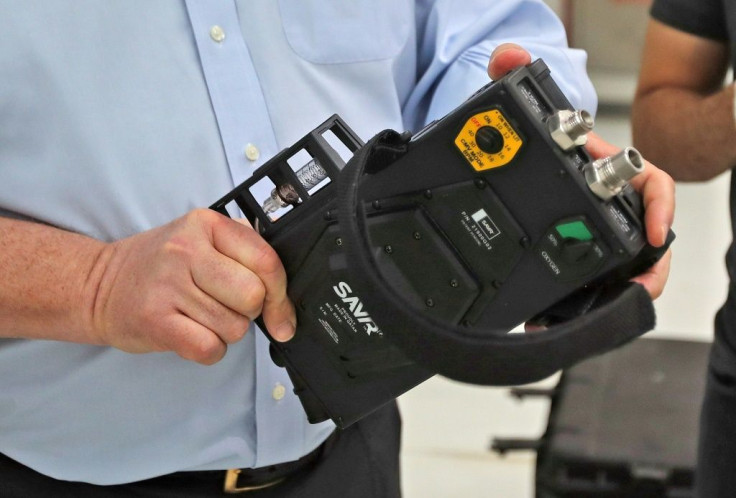
It has also allowed the small Gulf state to draw on capabilities developed the hard way in the wake of its regional isolation.
In the nerve centre of Qatar's nascent arms industry, the state-run Barzan Holdings facility, giant posters of soldiers toting locally made rifles promote "sovereignty" and "lethality".
But alongside all the gun parts and night-vision goggles, the factory is now preparing to churn out 2,000 life-giving ventilators weekly, in collaboration with US defence manufacturer Wilcox.

Many are earmarked for export to what Qatar deems "friendly countries".
"We thought it would be the perfect time to try to seize the moment to... ramp up production needs," Nasser Hassan al-Naimi, Barzan's managing director, said of the pandemic.
Saudi Arabia, along with the United Arab Emirates, Egypt and Bahrain, abruptly cut diplomatic, economic and travel ties with Doha in June 2017, insisting Qatar was too close to Iran and funding radical Islamist movements.
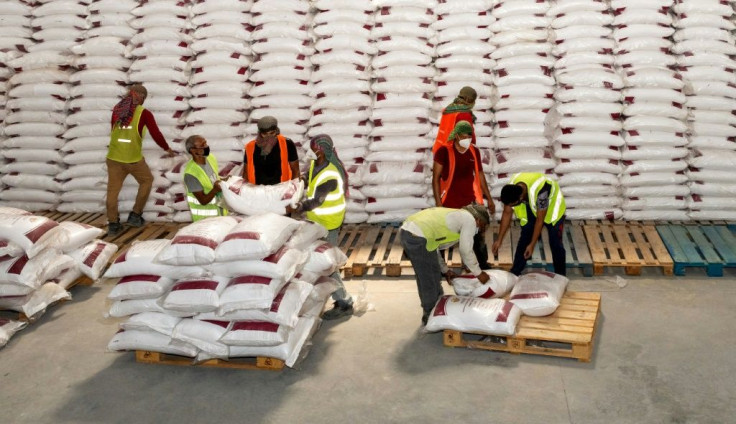
Qatar fiercely rejected those allegations and refused to budge on 13 demands made by its allies-turned-adversaries, including the closure of the Doha-based Al Jazeera news network and shutting a Turkish military base in the emirate.
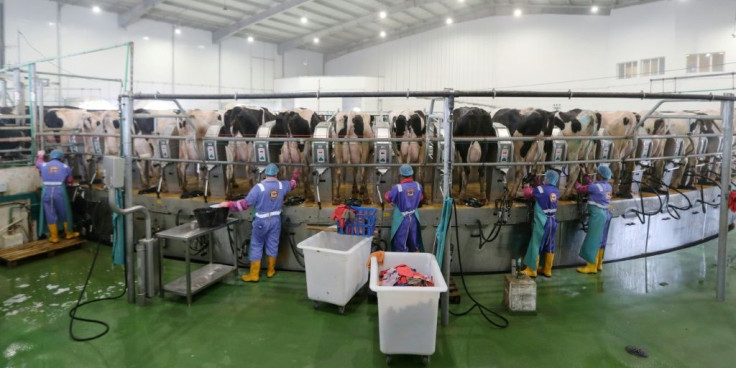
At the end of April, Naimi oversaw a military airlift from the United States of manufacturing equipment, which will initially be used to build ventilators before later being repurposed to produce military gear.
"There was a five-year strategy to bring in these machines over time, but now you've got it all at once," Naimi said at the glistening factory in a science park on the outskirts of Doha.
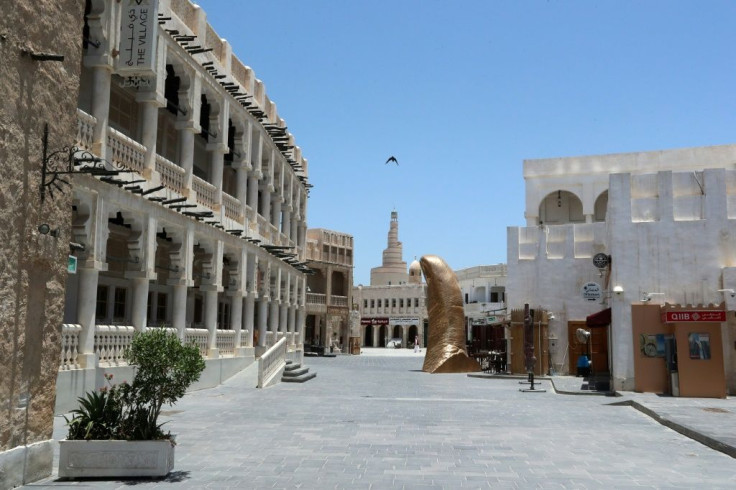
The operation was reminiscent of an airlift that flew in cattle, mostly from the US, to meet demand for dairy products in the first days of what Doha calls "the blockade".
Gas-rich Qatar's ostracism by the Gulf's key economic players propelled a self-sufficiency drive involving stockpiling food and setting up vegetable farms, in a country once entirely dependent on imports.
Despite a flurry of positive signs at the end of last year and a round of shuttle diplomacy that saw the Qatari foreign minister visit Saudi Arabia for talks, the freeze shows no sign of thawing.
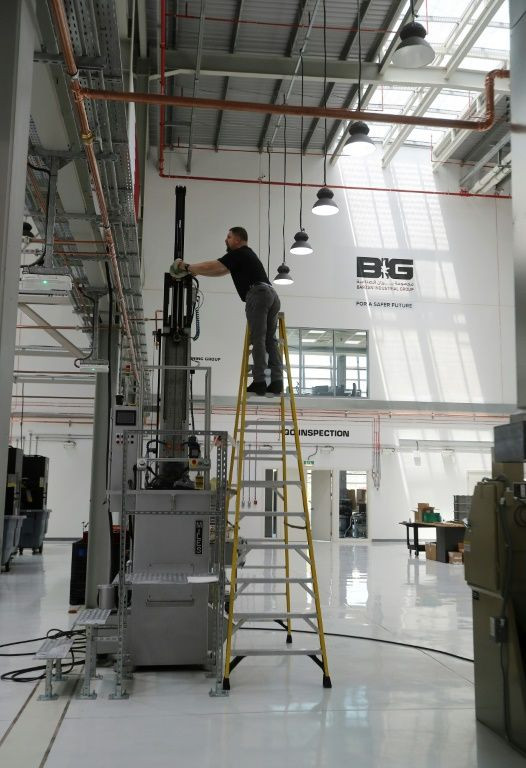
The blockade "worked as a catalyst and got us to where we are today," Naimi said. "It has been a blessing in disguise and allowed us to realise our true potential and make sure that everything that we need strategically... is manufactured here."
Despite the shock of the embargo, Qatar's economy has proved more resilient than those of its Gulf rivals -- the International Monetary Fund forecasts it will be one of only a few countries worldwide to run a budget surplus in 2020.
Managers are tight-lipped on the ventilator project's costs, which David Roberts, an assistant professor at King's College London, believes "will likely be frighteningly expensive".
Although medics are still evaluating the machines' effectiveness in treating COVID-19 patients, Barzan says five countries had expressed interest in the ventilators that Qatar is now pushing out at scale.
Demand for the machines comes amid anticipation of a possible second peak in infections as lockdowns are lifted, or another wave during the northern hemisphere's winter.
"In an era of COVID, we are all seeing that obtaining supplies of key items of equipment can be difficult. So a limited domestic indigenous capability makes sense," Roberts said.
Alongside using defence manufacturing capabilities developed under the embargo to respond to the health crisis, Qatar has also leaned on food security steps it took after its adversaries cut shipments.
At vast warehouses in the desert five key staples, including rice, cooking oil and sugar, are stacked high to help prevent empty shelves -- seen in Qatar immediately after its neighbours severed ties, and witnessed globally amid pandemic panic-buying.
"We have been keen to increase the stockpile of commodities that can't be grown in Qatar to meet the challenge of any epidemic like the coronavirus crisis," said commerce ministry official Jassim bin Jabor bin Hassan Al-Thani.
Stockpiles of rice should last eight months, sugar for seven months and cooking oil for three months, he said.
Doha said in December it would grow its strategic stockpile to six months' supply of 22 essential items for three million people.
Qatar came top for food security in the Middle East and 13th globally in the latest Global Food Security Index rankings, compiled by the Economist Intelligence Unit.
"If you just back up... 10 years, everyone was talking about the Khaleej (Gulf) community," said Tobias Borck, an associate fellow at the Royal United Services Institute.
"Qatar never really needed to be that self-sufficient, but the crisis created this moment of nationalism and of showing what they can do."
© Copyright AFP 2024. All rights reserved.




















